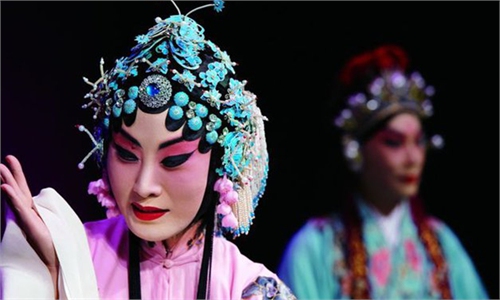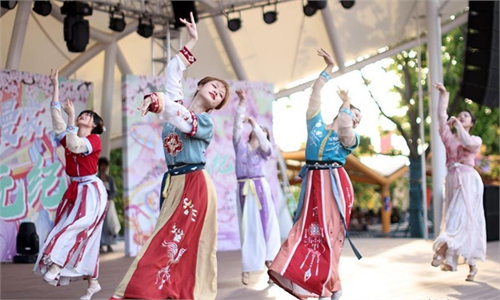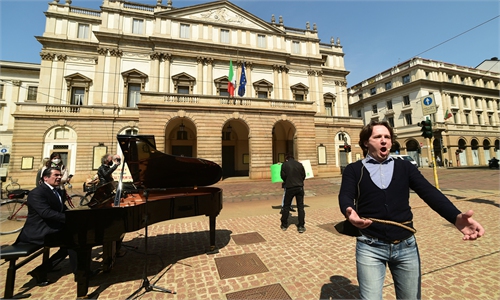ARTS / CULTURE & LEISURE
Excerpts from traditional Xizang Opera staged in Beijing
Epic performance
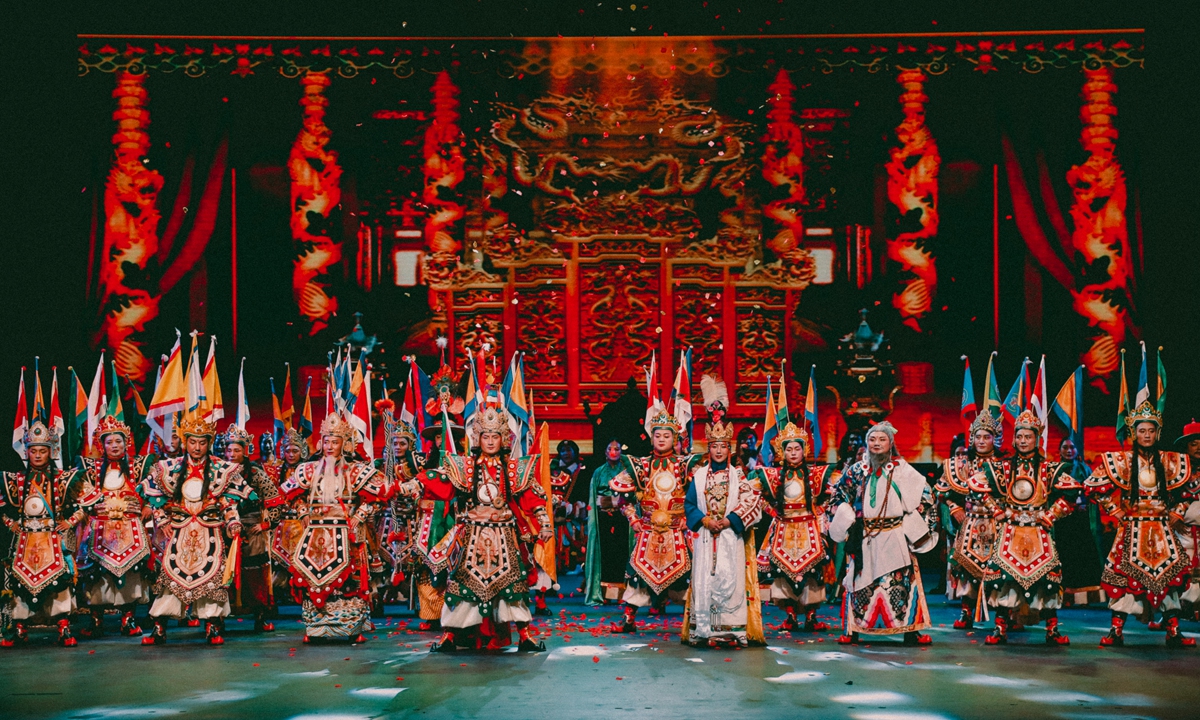
Stage photos of the traditional Xizang Opera Epic of King Gesar Phots: Courtesy of China Arts and Entertainment Group
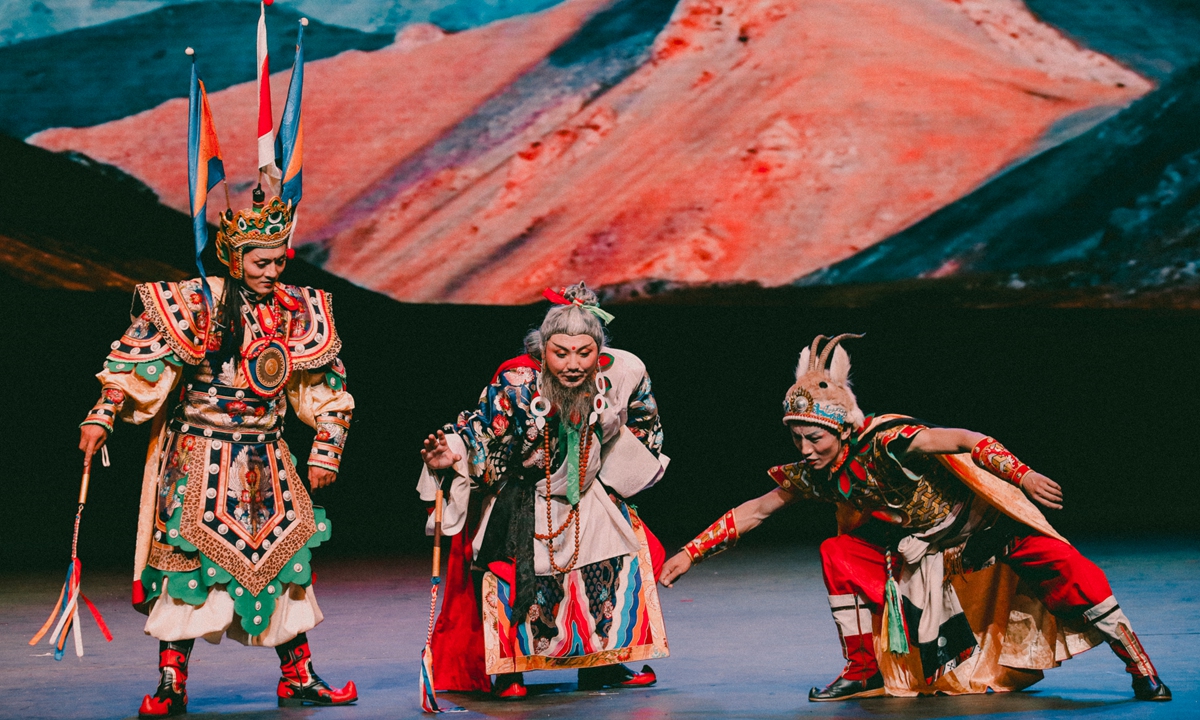
Stage photos of the traditional Xizang Opera Epic of King Gesar Photo: Courtesy of China Arts and Entertainment Group
A Xizang opera troupe formed by shepherds from a village in Southwest China's Xizang Autonomous Region came to Beijing and presented excerpts from Epic of King Gesar, the longest epic in the world, on Tuesday, a great warm-up ahead of the 2022 Beijing Olympic Winter Games.Ahead of the Games, a variety of cultural activities have been launched in Beijing, including the Xizang opera show held at the Tiaoqiao Performing Arts Center on Tuesday night, which was hailed by many audiences.
"We want to display the world's intangible cultural heritage to more people, not only in Xizang but also in other places of China and even the world with help of this great sporting event. The whole world is focusing on Beijing now and the Winter Olympics can provide a larger stage for Xizang opera," Yang Dan, deputy head of the Yel Bumen Xizang Opera Troupe, told the Global Times on Wednesday.
The opera is based on part of the story of King Gesar, who is a legendary hero and a symbol of Xizang.
"People of the Tibetan ethnic group can sing when they are born and can dance as soon as they can walk. The Epic of King Gesar has fused with their blood," Yang said.
The Epic of King Gesar is traditionally divided into three sections and the opera selects the dramatic reversal section in the epic, which shows how a poor child transforms into King Gesar.
The poor child Jueru, who was born in the legendary kingdom of Ling, is framed by his uncle and driven out of his tribe at the age of 5.
At the age of 13, he decides to return home and get back what originally belonged to him. Jueru becomes the champion during an important race in the kingdom, earning the support of most of the people of Ling Kingdom, setting the stage for him to grow up and become King Gesar.
The Yel Bumen Xizang Opera Troupe performed the opera in Tibetan but the troupe's head Samdrop Lhom translated the lines into Putonghua (Standard Chinese) and offered subtitles for audiences, helping them to understand the story.
All the members of the Yel Bumen Xizang Opera Troupe are local shepherds in Sertar county in Xizang, who often spend their spare time during the winter rehearsing the opera.
"They have performed in Sertar dozens of times without asking for any payment," Yang noted.
For the performance in Beijing, the troupe prepared 30 costumes for the generals in the opera. The costumes were made from cloth, but give off the stately feeling of real armor, a difficult trick for the designers to pull off.
They found a tailor with more than 40 years of experience making costumes for Xizang Opera. Since their date of departure was very close, all performers took up needles and completed 30 generals' costumes together as a troupe.
"Now we have 90 costumes of generals. King Gesar had 80 generals, so we can bring more parts of the epic to the stage in the future," the deputy head said.
After watching the performance, most audiences gave rave reviews, saying that the subtitles helped a lot and the Tibetan singing as well as dancing stunned them because the beauty of the culture could be felt despite the language barrier.
The Xizang opera show is one part of the 22nd "Meet in Beijing" International Arts Festival and Olympic Culture Festival.

